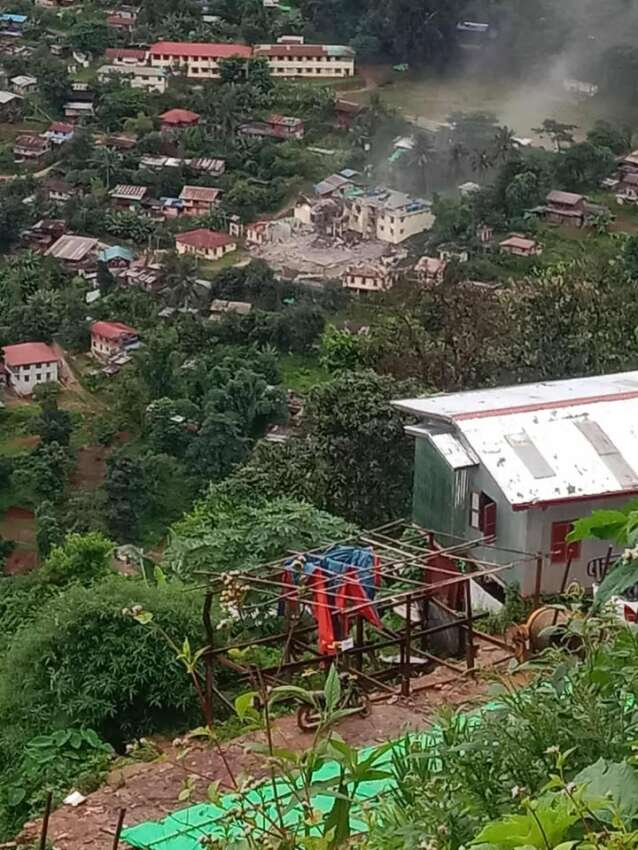
The military council conducted airstrikes on areas controlled by the Ta’ang National Liberation Army (TNLA) in Mogok city, Mandalay Region, on August 17th morning, resulting in the death of three civilians, including a child, according to local residents. The military council’s fighter jets carried out bombing raids on the eastern part of Mogok Township at 8:59 AM and 9:03 AM. The airstrikes killed a motorcycle rider on the road, a child, and another civilian. A 42-year-old gem mining worker from Mogok city reported that civilians are living in fear and concern for their safety due to the increasing frequency of daily airstrikes.
Simultaneously, the military council conducted aerial surveillance and bombing operations for two consecutive days on Loikaw Lo Hospital in the Mawchi area of Hpruso Township, Karenni State. These attacks resulted in injuries to a child and an adult, while also causing significant damage to the hospital building, as confirmed by local residents. The military council’s airstrike on Loikaw Lo village in the Mawchi area at approximately 8:30 AM today caused non-life-threatening injuries to a child and an adult. Local sources indicated that civilian casualties were minimized because people were already on high alert due to the military’s aircraft presence over the previous two days, though the hospital facility suffered extensive damage.
The military council continued its aerial assault with another bombing raid on the Mawchi area at 12:10 PM today. In areas where the military council lacks control, they have declared states of emergency and continue to conduct frequent airstrikes. As a result, revolutionary organizations have urged civilians to follow air raid safety protocols and guidelines, including the construction of sturdy bomb shelters. The ongoing airstrikes by the military council continue to result in civilian casualties and damage to civilian infrastructure, highlighting the deteriorating security situation in these regions.
Local residents have emphasized the increasing frequency of airstrikes and their impact on civilian life, with communities living under constant threat of aerial bombardment. The military council’s targeting of civilian areas and infrastructure, including medical facilities, has raised serious concerns about the safety and well-being of local populations. The situation has forced many residents to remain vigilant and take precautionary measures, though the continuous nature of these attacks makes it difficult for civilians to maintain normal daily activities. The destruction of essential facilities like hospitals further compounds the humanitarian challenges faced by these communities, as they struggle to access basic services while living under the threat of military violence.



